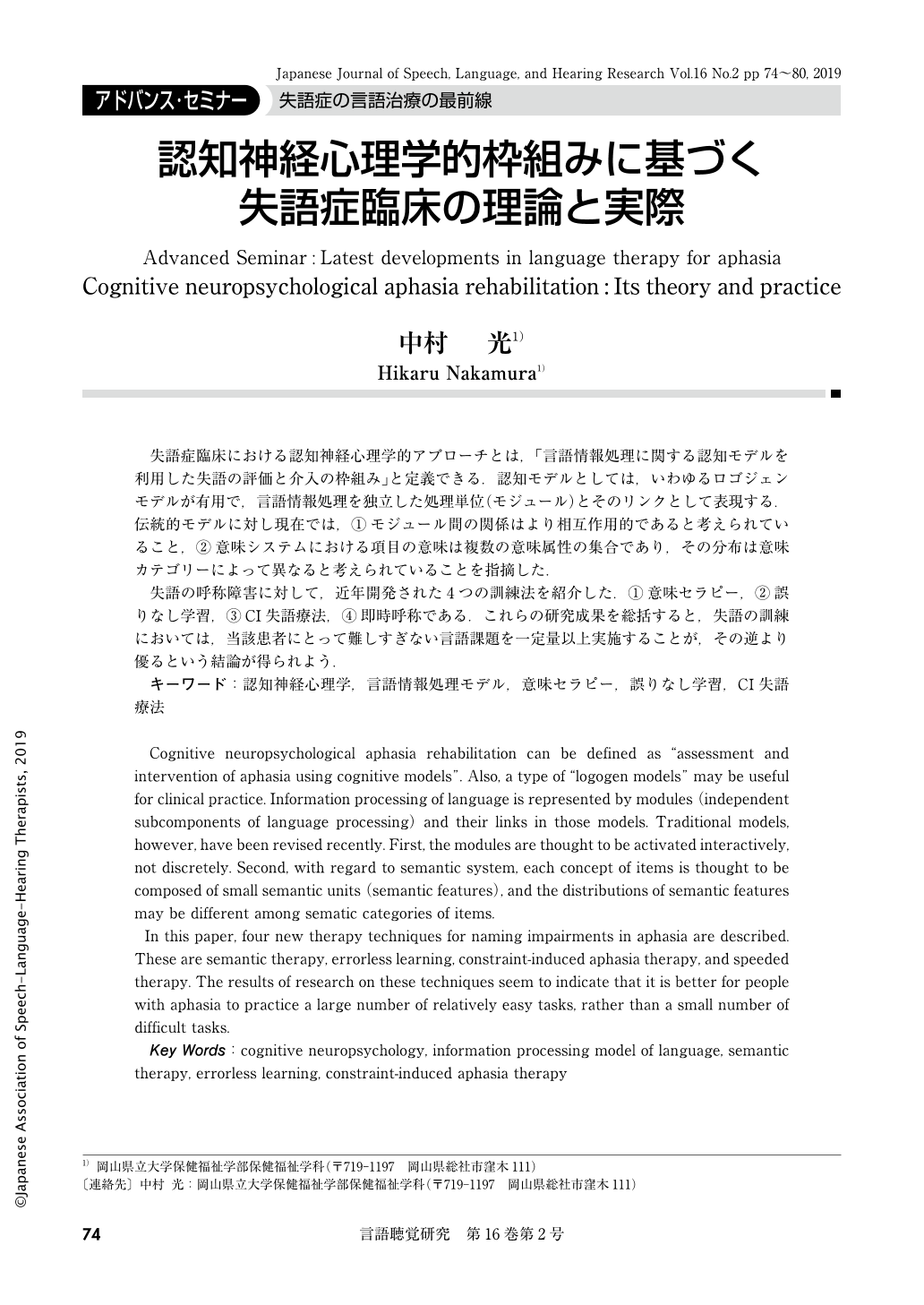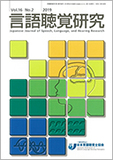Japanese
English
- 有料閲覧
- Abstract 文献概要
- 1ページ目 Look Inside
- 参考文献 Reference
- サイト内被引用 Cited by
失語症臨床における認知神経心理学的アプローチとは,「言語情報処理に関する認知モデルを利用した失語の評価と介入の枠組み」と定義できる.認知モデルとしては,いわゆるロゴジェンモデルが有用で,言語情報処理を独立した処理単位(モジュール)とそのリンクとして表現する.伝統的モデルに対し現在では,①モジュール間の関係はより相互作用的であると考えられていること,②意味システムにおける項目の意味は複数の意味属性の集合であり,その分布は意味カテゴリーによって異なると考えられていることを指摘した.
失語の呼称障害に対して,近年開発された4つの訓練法を紹介した.①意味セラピー,②誤りなし学習,③CI失語療法,④即時呼称である.これらの研究成果を総括すると,失語の訓練においては,当該患者にとって難しすぎない言語課題を一定量以上実施することが,その逆より優るという結論が得られよう.
Cognitive neuropsychological aphasia rehabilitation can be defined as "assessment and intervention of aphasia using cognitive models". Also, a type of "logogen models” may be useful for clinical practice. Information processing of language is represented by modules (independent subcomponents of language processing) and their links in those models. Traditional models, however, have been revised recently. First, the modules are thought to be activated interactively, not discretely. Second, with regard to semantic system, each concept of items is thought to be composed of small semantic units (semantic features), and the distributions of semantic features may be different among sematic categories of items.
In this paper, four new therapy techniques for naming impairments in aphasia are described. These are semantic therapy, errorless learning, constraint-induced aphasia therapy, and speeded therapy. The results of research on these techniques seem to indicate that it is better for people with aphasia to practice a large number of relatively easy tasks, rather than a small number of difficult tasks.

Copyright © 2019, Japanese Association of Speech-Language-Hearing Therapists. All rights reserved.


